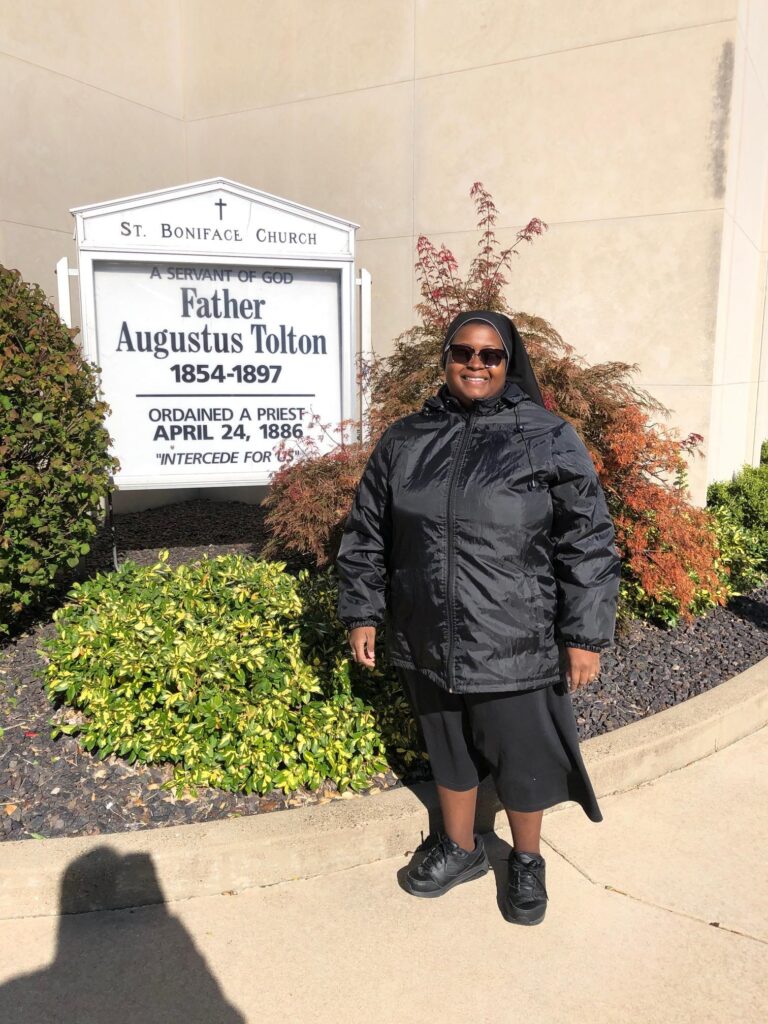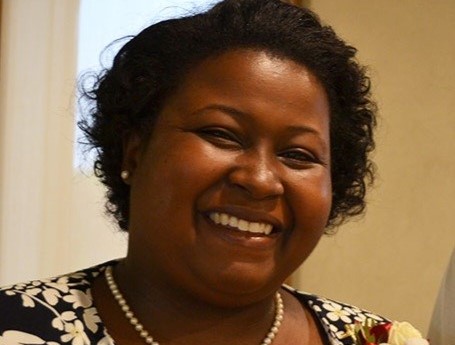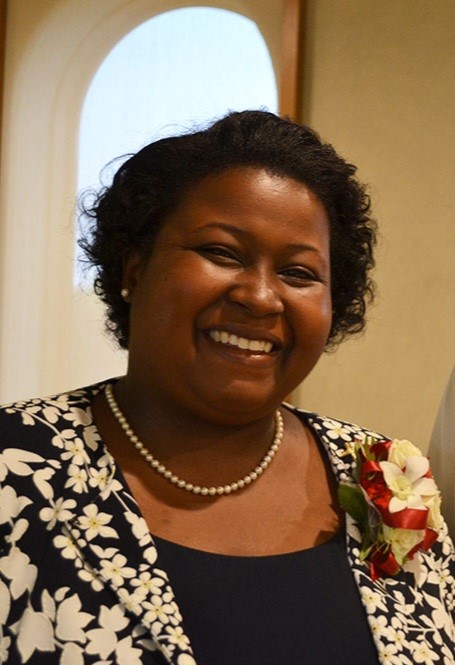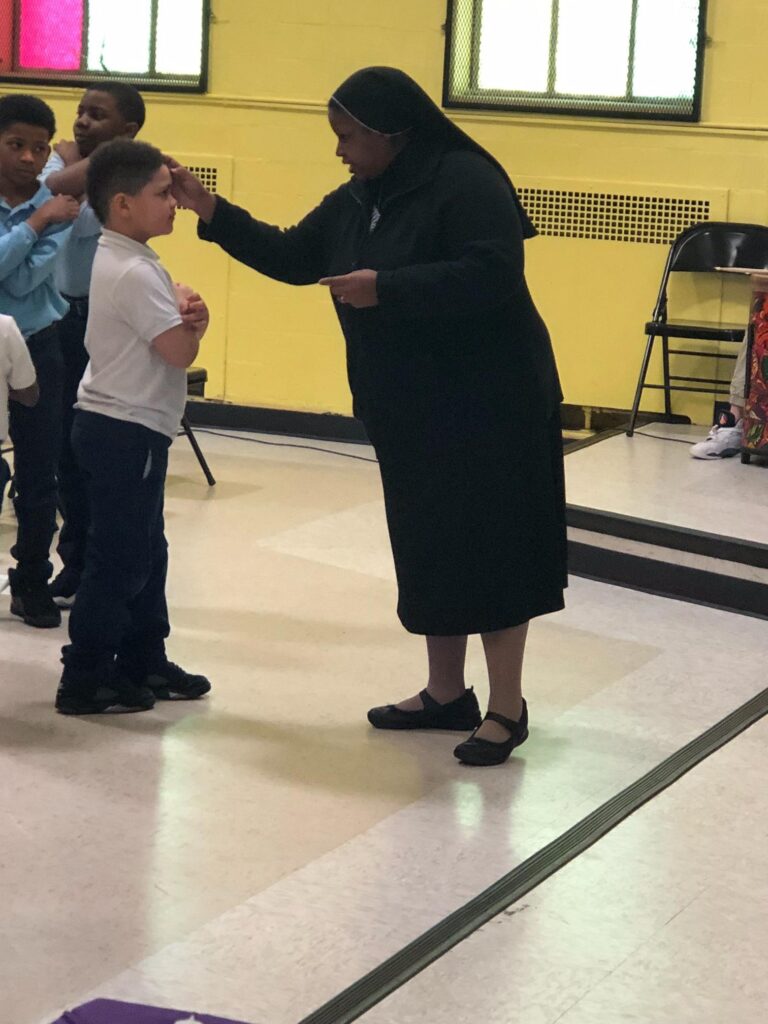
Black Sisters Testify: Example of Love and Healing
Briana Jansky
November 20, 2022
When LaKesha Church was a young girl, she had a close relationship with God. As a convert to the Catholic faith and temporarily professed with the Sisters of the Precious Blood, her relationship with God is stronger than ever. For Sr. LaKesha, maintaining her close, personal relationship with God and serving others has always been central to discerning God’s will for her life.
Growing up in the Missionary Baptist church, she quickly found that she had a servant’s heart. She was heavily involved in youth ministry. Encouraged by her mother, she became involved in church ministry and worship services regularly and grew in her faith. Later, she volunteered with the Peace Corps, serving in Botswana, Africa.
This knack for service and willingness to follow God led Sr. LaKesha to begin discerning her vocation early on, even before she became Catholic. Now, as a fourth-grade teacher St. Adelaide Academy in Highland, California, she carries her servant’s heart into the classroom daily with her students to show them Christ and to help them become competent citizens.
Like most African American sisters, Sr. LaKesha experienced her fair share of rejection during the discernment process. Historically, Black Sisters have faced difficulty and resistance to professing vows within the church. Many sisters, such as Henriette Delille and Mary Lange, founded their unique religious orders after being rejected by all-white communities, and today, less than 3 percent of Catholic Sisters are African American. Most of them still experience racism, discrimination, and rejection.
Sr. LaKesha had a similar experience that led to a turning point in her discernment process. After one particularly hurtful experience at a “come and see” event, she found herself ready to throw in the towel. Although she felt discouraged, she still felt led to pray to God.
“I think I’m done, Lord. But if you’re not done, then let me know,” she prayed. No sooner than she uttered those words, she received a phone call from the Sisters of the Precious Blood inviting her to come and discern with them.

Sr LaKesha Church, CPPS, stands in front of St. Boniface Church, a place where she finds herself often praying with the saints.
While discerning one’s vocation can often be confusing, Sr. LaKesha has found ways to help with clarity. Along with meeting with a spiritual director and learning the language of discernment, Sr. LaKesha believes in the power of prayer and the intercession of the saints.
“I believe in the power of continual prayer, especially before the Eucharist,” she says. “Through those channels I have been able to hear God’s voice.”
For Black women considering discerning religious life, Sr. LaKesha confidently recommends finding support with the National Black Sisters’ Conference. Founded in 1968 by Sr. Martin de Porres Grey (Patricia Grey Ph.D.), the NBSC has offered education and support to African American religious sisters. The NBSC has extended valuable support to Sr. LaKesha during her discernment.
Sister LaKesha says that living in community “can be a challenge and a struggle, but also a gift.” As she spent time in various congregational houses, she learned more about herself and how to live in community with others. She says, “I’m still learning! Relationship building is a lifelong process.”
In addition to the National Black Sisters’ Conference and the Sisters of the Precious Blood, Sr. LaKesha has also found strength in the saints. She likes to ask for intercession from St. Teresa of Ávila and Mary Undoer of Knots.
As she continues to discern religious life, Sr. Lakesha has a few goals in mind. First, she wants to be herself fully, united through vows. In terms of being herself, she means her authentically Black self and all that her experience as a Black sister has to offer to the life of the church and others. These experiences include her suffering, joy, intelligence, wit, and culture.
She also wants to continue teaching her students what it means to be a life-giving, reconciling presence in the church. As the church grapples with issues such as racism and division, she wants to teach them integrity, unity, and what it means to respect the human person. She understands that part of her mission and calling to serve is to help guide her students along the path as they journey their way closer to Christ and with others.
For Sr. LaKesha, a healed church looks like the communion of saints: “Jesus did not judge or cast the first stone. He loved everyone. If we can truly imitate him, we will be healed.”
For her, it’s crucial to be this example of love and healing to her students. In her words, it is essential to be a life-giving example of what it means to imitate Christ. “I have to teach my students about Christ and his love. He encountered people with love, and he dignified them.”
Briana Jansky is a freelance writer and author from Texas.









